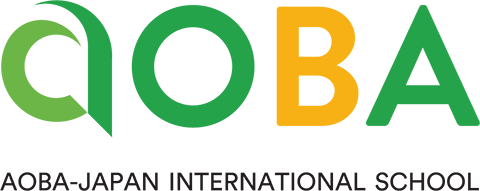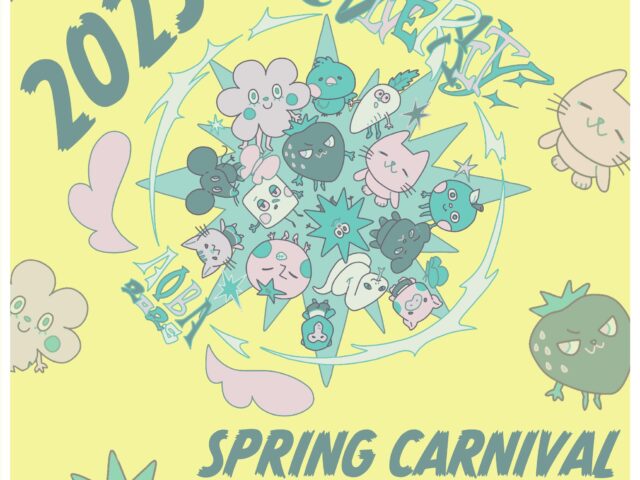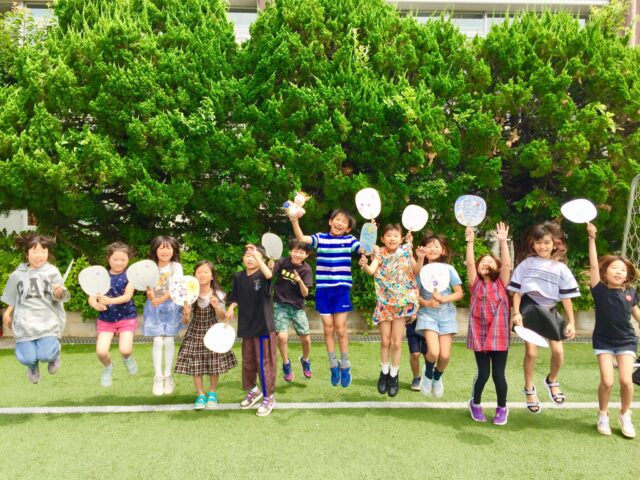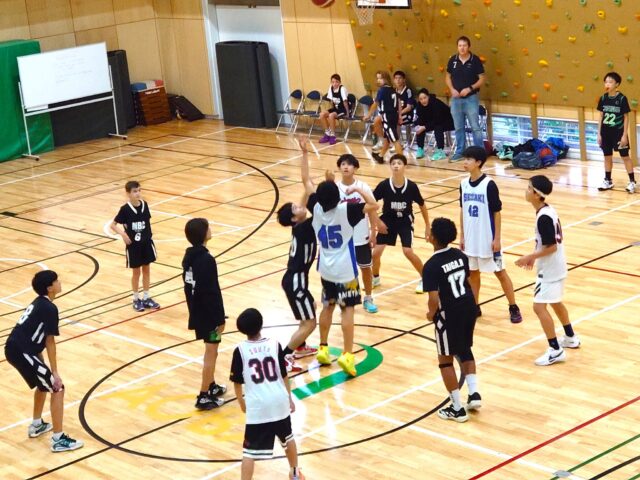FAQ
What kind of person will your child become?
Choosing an appropriate school for children is one of the biggest and most difficult decisions that parents face. There are many considerations to make, and many questions to ask.
Why should Aoba be your choice?
Here we provide some of the most common questions and answers to help make your decision-making process easier.
Please click on any category below to view questions and answers.
Admission
When is the application deadline?
For each school year, the first-round application period is from mid-October to mid-December (before the Winter Break). However, to accommodate the needs of families who relocate either globally or locally at any time of the year, we accept applications all year round, dependent on grade vacancy.
What documents are required for enrollment into Aoba?
The application is to be completed online through the Veracross Admissions Portal. You will be asked to complete various checklists including personal information on the applicant and parents, medical and immunization information, school report uploads and teacher recommendations (Aoba format). You can start your application from here.
What is the admission process?
The application process involves several steps:
- Start your application from our website
- Access the Veracross Admissions Portal and complete all checklist items
- Admissions Officers will review the application
- Interview (child and parents)
- Placement and language assessment
What happens during the interview?
The interview is designed to learn from the student what they enjoy about school and what they expect from Aoba: it is also designed to learn from parents why they wish their child to receive an international education. It is also the opportunity for parents’ or students’ questions to be answered.
How do the admissions assessments work?
The admissions assessments have two main purposes:
• Assessment of the student’s previous learning and understanding, and
• Identification of any learning and/or language support needs the student might have. All assessments are age-appropriate, and they are designed to be straightforward and non-stressful: we want the students to show their capabilities.
Can we have a tour of your campus?
We offer regular online information sessions and campus tours.
Can Japanese students enroll as students at Aoba?
Yes, we welcome students from all cultural and national backgrounds, including Japanese students, so long as they have the capacity to access and benefit from our program. Students should be suited to the inquiry based team learning that takes place at Aoba, and families should be aligned to the school values.
What if my child doesn’t speak English?
Students at Aoba are immersed in English. In G1-G9, we offer an inclusive in-class support program to a limited number of students in each grade whose English is not quite at the grade level. More information: Support Services
Is student financial aid available?
Currently there is no financial aid available for newly enrolled students.
Do all students and parents have to speak English before enrolling at Aoba?
Applicants should have sufficient English to follow an all English class environment in order to be accepted and benefit from the program. We can accept a limited number of students whose English is lower than the mainstream grade level. These students will be placed in the Support program, which is available from G1 until G9. In the early learning years (K-G1) can we accept a small number students with little to no English, providing that their home environment will help facilitate language development.
Regarding parent/guardian communication, it is essential that at least one parent can communicate in English.
About Aoba
What kind of cultural demographics are represented in the Aoba community?
We aim for teacher demographics that represent a variety of backgrounds, nationalities, and cultural diversity. There are over 40 nationalities are represented within the school community. Approximately half of our students hold a Japanese passport, and many of these students are many are returnees from Japan, or dual citizens.
[accordion]
Is Aoba affiliated with a particular religion?
No, we are a secular school and we welcome students from all races, religions, and cultures.
What education standards bodies accredit the programs at Aoba?
Aoba is accredited by the Council of International Schools (CIS) and the New England Association of Schools and Colleges (NEASC). We are also an IB World School, providing the IB PYP, MYP and DP, authorized by the International Baccalaureate Organization, IBO, in Geneva, Switzerland. The Japanese Ministry of Education also recognizes the school. This allows our graduates to apply to Japanese universities.
Is Aoba an English language school?
No, we are not an English language school. We offer a complete curriculum for full-time pre-school to high school students (kindergarten to grade 12). All core classes are taught in English.
What is the entry timing?
The school year is from late-August until June. We also offer an optional Summer School. August is the standard time for new students to join Aoba, however we cater to the needs of families to move internationally and we can accept students at any time of the year, depending on grade vacancy. April entry is possible for students who transferring at the end of the Japanese school calendar. For mid-year entry, please speak with out Admissions staff in advance to check the grade vacancy.
Why should I send my child to an international school?
For international families, of the primary advantages of sending children to an international school is to continue an education in the English language. Our small class sizes and international curriculum offer an environment conducive to developing students’ creativity and critical thinking skills. Whenever parents have concerns about their children keeping up with their cohorts back home, an international school like Aoba can be a good option.
Curriculum
Aoba is an IB World School. What does that mean?
Aoba provides the IB curriculum at all levels: the PYP, MYP, and DP: Our core values that are reflected throughout the curriculum are developing global leaders, entrepreneurs and innovators, effective communicators, wise risk takers, and effective problem solvers.
What are the unique characteristics of the Aoba curriculum?
We focus on creating the mindset that will allow our students to participate with confidence at the international level. We have designed our approach to learning that encourages the development of five core characteristics: global leadership, entrepreneurship and the ability to innovate, effective communication, wise risk taking, and effective problem solving.
What is the International Baccalaureate?
The International Baccalaureate is a Geneva-based non-profit educational foundation that runs four educational programs for students aged 3 to 19, with the aim of helping develop the intellectual, personal, emotional and social skills to live, learn, and work in a rapidly globalizing world. Founded in 1968, the IB currently works with 5,500 schools in 159 countries to develop and offer its four programs to more than 1,950,000 students aged 3 to 19 years.
What language are lessons taught in?
All lessons, with the exception of Japanese Studies, are taught solely in English by native English class teachers. Children are screened before entry to ensure their English is at a level that allows them to access the curriculum at the school. If their English is not immediately sufficient for their respective grade, the student will be placed in the Support program, and receive support within the mainstream classroom.
Classes
What are the class sizes?
On average, the student to teacher ratio at Aoba is 15:1. In the preschool and kindergarten years, there are no more than 16 children with two adults. In Grade 1 and Grade 2, class size is 20 students per class; and from Grade 3 and above, class size is capped at 25. Rather than filling classes, we aim to maintain a strong balance of student and teacher needs, so classes are not always filled to capacity.
What nationality are the teachers?
All class teachers are native English speaking teachers, in almost all cases hired from abroad. Among other things these teachers are:
- Trained, qualified, and committed to excellence.
- Dedicated to the profession and love children and educating children.
- Flexible team players who wish to continue learning as well as teaching.
- Looking to constantly improve what we offer the children as well as their own skills as teachers.
Are your teachers licensed to teach?
Yes, all of our teachers are trained, certified, and licensed to teach at all levels. Teachers also participate in regular Professional Development days throughout the school year.
How long is the school day?
Start and finish times are as follows.
School Life
Does Aoba have a bus service?
Yes, there are several bus routes servicing both Meguro and Hikarigaoka campuses. The buses to and from Hikarigaoka campus are prioritized for Kinder to G6 students. Please contact us for further information.
Many students take public transport to and from school. Hikarigaoka campus is a 12-15 minute walk from Hikarigaoka train station on the Toei Oedo line We also offer a free shuttle bus to and from Hikarigaoka station for all students. Bunkyo campus is a short walk from Sugamo station (JR Yamanote line). *Note that Aoba students are ineligible for the student-discount commuter pass on JR and Metro lines.
Are there any after-school activities offered?
We encourage students to explore their interests outside of the classroom and we offer many after school programs (ASP) focusing on sports, arts, sports, dance, music and more. ASP are run at the school by teachers, instructors and outside specialists. Further information: ASP
Do you offer summer school programs?
Yes, we offer summer school to current students and newly enrolled students from June to August. Families must register for this optional program in advance. Registration is available usually from Spring each year. The second half of the summer school program is also open to local community students.
Are Aoba students required to wear a school uniform?
All students are required to have a school uniform, however daily wear is optional at Hikarigaoka and Bunkyo campus. See the Dress Policy for details.
Can I volunteer at Aoba?
Yes. All families are welcome to participate and volunteer in activities. We have a wonderful Family Community who arrange regular coffee mornings, school events and other initiatives around the school.
Does Aoba offer accommodation to international students?
Aoba does not not have a dormitory or provide accommodation to students. Our students live with their families in the Tokyo area. International students must enter the school with a proper visa and will be asked to present documentation at the point of entry into the school.
What safety and security measures are taken at Aoba?
The school is surrounded by fences and steel gates for external security. Internally, fire, earthquake, and lockdown drills are held regularly throughout the year. The low student-teacher ratio contributes to close care and quick response during accidents.
What do you do when a child suddenly gets sick while at the school?
We have a school nurse who is available all day, every day for both emergency and non-emergency situations.
What events do you have for parents and children during the year?
Our school offers a variety of family activities that coincide with special occasions such as Halloween, Winter Concert, Spring Carnival, Family Days, Sports Day, and other Japanese and international holidays. Please see our calendar for specific dates and opportunities. All events showcase the achievements and progress of the children to our entire community.
What about potty training? My child still wears a diaper.
We have potty training and diaper service only in K2 at Meguro Campus. We have experienced female teachers who help train the children and will change their diapers until they have learned to use toilet facilities properly. All students enrolling at the Hikarigaoka Campus must already be potty trained in order to enroll.
Does your school have insurance?
Yes, we do. Please contact us for more information.



